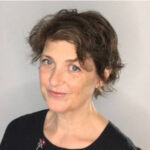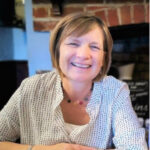‘Working with simulated patients’ Identifying the key strategies for training and working with Simulated Patients in healthcare communication teaching
This two session online course is aimed at healthcare communication educators who want to learn more about key strategies for effectively training and working with simulated patients for communication teaching and assessment. We invite educators with a variety of backgrounds and levels of experience in working with simulated patients to attend the course. It is highly interactive, participant-centred and experiential. It will be facilitated by experienced teachers and simulated patients from EACH.
It is an expectation that participants will attend both linked workshops.
The course will be held in English and as much as possible will accommodate participants for whom English is not their first language. We are aware that institutions in different countries will have varying resources in terms of available teachers, simulated patients and technology
Workshop 1: Focuses on how to train simulated patients (SPs) to deliver safe, effective and meaningful roleplay experiences for all learners
By the end of this workshop participants will be able to:
- Describe how to train SPs to realistically portray pre-written and spontaneously developed patient cases
- Articulate how and why to share the content of communication skills models with simulated patients
- Apply strategies to help SP’s adapt their portrayal in response to the skills being used by the learner
- Use techniques to enhance SP’s portrayal of emotions
- Train SPs to provide feedback from the patient’s perspective
Workshop 2: Focuses on how to train teachers to maximise the potential of simulated patients (SPs) during experiential teaching
By the end of this workshop participants will be able to:
- Identify and manage common challenges that arise as part of SP roleplay
- Use Agenda-led Outcomes Based Analysis (ALOBA) to ensure the ‘correct’ level of challenge and flexibility in an SP roleplay
- Demonstrate how to calibrate the level of emotion in a roleplay to meet learners needs
- Guide SP’s to give specific, descriptive feedback to learners
- Describe the importance of checking in with the SP before and after a teaching session
Facilitators
 Kim Taylor
Kim Taylor
Simulated Patient, Cambridge University UK
Kim Taylor’s work as a simulated patient in the field of Clinical Communication Skills training has led to workshops and courses with doctors and healthcare professionals throughout the UK and internationally from Norway to USA, throughout Europe to South Africa.
At undergraduate level, Kim works in experiential sessions with medical students at the University of Cambridge and has recently consulted on several projects for the University including simulated patient training and a review of the SP recruitment process. With a special interest in the development of training materials, Kim has devised and delivered simulated patient training in the UK, Portugal, Austria, Russia and Sri Lanka.
 Sandra Winterburn
Sandra Winterburn
Academic Lead for the Clinical Communication Curriculum, Norwich Medical School
Sandra works as an Associate Professor at Norwich Medical School where she is the Academic Lead for the Clinical Communication Curriculum. She has a background in nursing and has been actively involved in teaching clinician-patient communication to a range of professional groups, at both undergraduate and postgraduate level, for more than 15 years.
Sandra is Co-Chair of the teaching committee (tEACH) within EACH and has a particular interest in:
- Small group experiential teaching methods (including online delivery)
- Train the Trainers initiatives
- Curriculum Design for Healthcare communication
 Marcy Rosenbaum
Marcy Rosenbaum
University of Iowa Carver College of Medicine, USA
Marcy Rosenbaum, PhD, is Professor of Family Medicine at the University of Iowa Carver College of Medicine in the US. She is currently the Past President of EACH and former co-chair of tEACH, the teaching committee of EACH. She has conducted research on and taught about clinical communication and medical education for over 30 years with a particular emphasis on experiential simulation and workplace based communication learning.
Timezone
The timezone is BST
Closing date for bookings – 1 June
